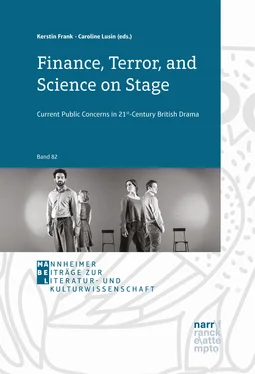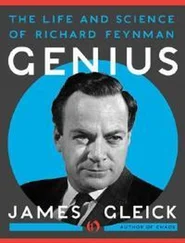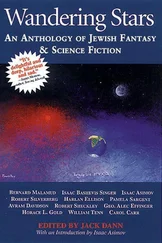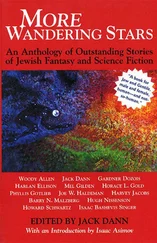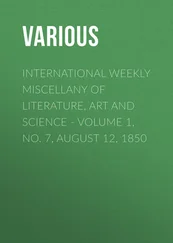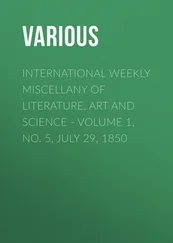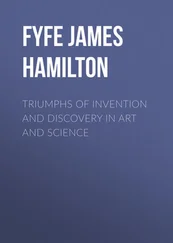Finance, Terror, and Science on Stage
Здесь есть возможность читать онлайн «Finance, Terror, and Science on Stage» — ознакомительный отрывок электронной книги совершенно бесплатно, а после прочтения отрывка купить полную версию. В некоторых случаях можно слушать аудио, скачать через торрент в формате fb2 и присутствует краткое содержание. Жанр: unrecognised, на английском языке. Описание произведения, (предисловие) а так же отзывы посетителей доступны на портале библиотеки ЛибКат.
- Название:Finance, Terror, and Science on Stage
- Автор:
- Жанр:
- Год:неизвестен
- ISBN:нет данных
- Рейтинг книги:5 / 5. Голосов: 1
-
Избранное:Добавить в избранное
- Отзывы:
-
Ваша оценка:
- 100
- 1
- 2
- 3
- 4
- 5
Finance, Terror, and Science on Stage: краткое содержание, описание и аннотация
Предлагаем к чтению аннотацию, описание, краткое содержание или предисловие (зависит от того, что написал сам автор книги «Finance, Terror, and Science on Stage»). Если вы не нашли необходимую информацию о книге — напишите в комментариях, мы постараемся отыскать её.
Finance, Terror, and Science on Stage — читать онлайн ознакомительный отрывок
Ниже представлен текст книги, разбитый по страницам. Система сохранения места последней прочитанной страницы, позволяет с удобством читать онлайн бесплатно книгу «Finance, Terror, and Science on Stage», без необходимости каждый раз заново искать на чём Вы остановились. Поставьте закладку, и сможете в любой момент перейти на страницу, на которой закончили чтение.
Интервал:
Закладка:
In the climactic exchange between the three characters, John clearly stands for the movement that has crystallised around him, with his supporters waiting both in front of 10 Downing Street and in Trafalgar Square. While the protests originally started out from concrete grievances like student fees, John rarely addresses actual issues. His topics are much more abstract (cf. Megson 52), urging the importance of dreams, feelings and – most importantly – belief (“through believing in the impossible you might just make it happen”), and move on from empty everyday routines to reaching idealistic and seemingly unrealistic goals (63, also 91f.). This character’s success with the people of London is clearly connected with the fact that everyone is left free to fill in his or her own concrete desire for change here – as John says explicitly in the end: “[I]t’s not the object of belief that’s important but belief itself.” (128) Moreover, it is also the caring sympathy that he seems to radiate which successively turns very different kinds of characters (and finally even the seemingly blasé Mark, 100f.) into his devoted followers. John apparently pays genuine attention to people’s individual problems, intuiting with dazzling accuracy what is wrong with them and what they need most at the moment. As Rachel (who at first responded rather critically to John’s return, 20) tells Amir, whom John has just seemingly miraculously freed from detention: “I mean actually of all people he was the one we needed but – […].” (32) In this respect, the focus increasingly shifts from factual problems to people’s emotional situation both in John’s speeches and in his personal contact with other characters, highlighted by the question: “[H]ow do you feel?” (89) The hope that he spreads is also closely connected with the community spirit that he preaches to counter the prevalent sense of loneliness (e.g. 90), condensed in the almost liturgical slogan “In our name!” (92), which the protesters come to chant.
In terms of the play’s experiential approach, the growing interweaving of the characters’ stories may well mirror this sense of community – though (as was discussed above) these seemingly uncontrollable interconnections also transport rather uncanny associations in the play. Indeed, despite (or perhaps because of) John’s sway over the great majority of the people on stage, the play finally does not encourage the audience to see him as an unambiguously positive force. His progress until act four clearly has messianic overtones (cf. Sierz), with the gathering of disciples from all social groups and the healing effect he seems to have on his followers. This group at first sight seems to be equivalent to “The Twelve” in the cast list (3), with obvious apostolic associations – but one has to note that this list includes Ruth and Stephen, who pointedly do not fall under John’s influence. Factually, the number ‘twelve’ here singles out those susceptible to the nightmares, which possibly undercuts John’s role as a new messiah in the subtext. Nevertheless, the term ‘disciples’ is promoted by the press in the play (101), and the first of this group, Holly, is fittingly a woman who – in the leader’s own words – “has sex for money” (65). Moreover, John apparently knows the future and is able to see through surface appearances, correctly predicting rain (64–6) and pointing out Stephen’s as yet not completely diagnosed cancer (106). His constant patience and willingness to turn the other cheek may almost seem too good to be true, and the coincidences associated with him also elicit critical comments in the play (32, 115), thereby potentially bringing in the uncanny connotations of the growing interconnectedness of all the individual stories. Indeed, the title of 13 pointedly foregrounds that the addition of the leader figure to the biblical number of disciples results in negative connotations which are spread still further by the related leitmotif. Like the coincidences, the link between John and ‘thirteen’ is also explicitly commented on in the play when Zia explains to Shannon that counting the letters in John’s speeches “in the right way” results in that number “again and again” (77). The unease pervading the responses to the play may thus also relate to this charismatic leader and his power, the source of which finally remains obscure.
In marked contrast to John, Ruth as his key counterpart is shown to stand alone at the point when they confront each other directly. Visually, she is the only one of ‘The Twelve’ left standing – and “centre stage”, too – at the end of the previous act, when the other characters bend down in the face of an overwhelming finding or realisation in their lives (90). At this moment, John, who is giving a speech, has just asked his audience whether they feel “[a]lone” (ibid.), while two scenes earlier Dennis, the US President’s special envoy, had already told Ruth: “[Y]ou’re on your own […].” (84) In the first scenes of Act Four the spectators then see her team (with the exception of one small gesture of support) refusing to back her decision to talk to John (97, 101f.), leaving her to conclude: “I understand, I’m on my own.” (102) For about half of the exchange with John, Stephen is still present at Ruth’s side, but the audience will be aware long before he is taken to hospital that his health is too bad to allow him to be a real help to Ruth. After all, he, too, was seen to collapse in the final scene of the third act, but in contrast to the other characters very obviously for physical reasons, tellingly not allowing him to finish his Oxford Union speech (88–90).
Nevertheless, for the first half of the pivotal conversation, Ruth hangs back a little and leaves much of the grappling with John to Stephen, which gives the former a lot of scope for expounding his views on the basis of political power and the ways in which it should be used. John again stresses the importance of “dreams” in politics instead of “compromise” (108, 110) and urges Ruth to take radical decisions (like raising taxes or refusing to join in the strike against Iran) based on “Purpose. Conviction, Belief” (114), the last of which is reiterated as John’s fundamental value (115). According to him, “the people” (whom Stephen denounces as too unreliable to be trusted with power, 116f.) would back such a course (114, 108–10), because his “generation isn’t apathetic, we’re voting every second of the day”, as “millions of views, opinions, solutions” are constantly available on the internet (114). Thus, John argues for relying on an empowering sense of community both in Britain and with the Iranian people, whom he wants to trust to bring down their government themselves (114f.). At one point, it even seems as if he might be able to reach Ruth with these arguments (116), but that moment passes again very quickly.
As Ruth only really enters the discussion once Stephen has left, John’s views are already well-known to the audience as a contrastive foil then. While earlier on she admitted to believing in God again privately (37), she explicitly juxtaposes the underlying basis of her politics to John’s here: “compassion and feeling and emotion ” are necessary (123, emphases in original), but the “solution to a nasty world” is “[h]ard work, opportunity, and in the end, yes, self-interest” (ibid.). Accordingly, “compromise”, “discussion and thought ” (126, emphasis in original) should take precedence over “ideologies” (ibid.) as well as John’s dreams: “We dream of things that don’t exist all the time.” (127) With her rational approach, the ideal leader of the country is the “manager” (126) explicitly rejected by John earlier on (110). Ruth even goes a step further and denies her interlocutor what he considers the most important justification of his own and any political power, as she asserts that in contrast to him, her son, who died from drunkenly jumping off a bridge in John’s presence, “had real belief in the people” (118). With regard to her, the principal value on which power and political decisions are based can be described as responsibility, as recognised by Stephen (108). While Ruth does not use the term itself, she repeatedly accuses John of lacking this quality, in relation to both her son’s death and the conversation that he had with Sarah, Ruby’s mother, before she killed her daughter: “I think you make people do stupid things. I think you encourage them to take the brakes off […].” (125) Indeed, just like belief (cf. Megson 42, 55), the importance of personal responsibility runs through the play like a leitmotif (cf. Sierz; Bowman), with the characters (including John’s followers) regularly blaming each other for shirking responsibility (31, 95). From this perspective, John clearly falls short, as his disappearance is understood as irresponsibility from the first scenes of the play onwards (16) and he apparently has no arguments against this charge (106f.).
Читать дальшеИнтервал:
Закладка:
Похожие книги на «Finance, Terror, and Science on Stage»
Представляем Вашему вниманию похожие книги на «Finance, Terror, and Science on Stage» списком для выбора. Мы отобрали схожую по названию и смыслу литературу в надежде предоставить читателям больше вариантов отыскать новые, интересные, ещё непрочитанные произведения.
Обсуждение, отзывы о книге «Finance, Terror, and Science on Stage» и просто собственные мнения читателей. Оставьте ваши комментарии, напишите, что Вы думаете о произведении, его смысле или главных героях. Укажите что конкретно понравилось, а что нет, и почему Вы так считаете.
